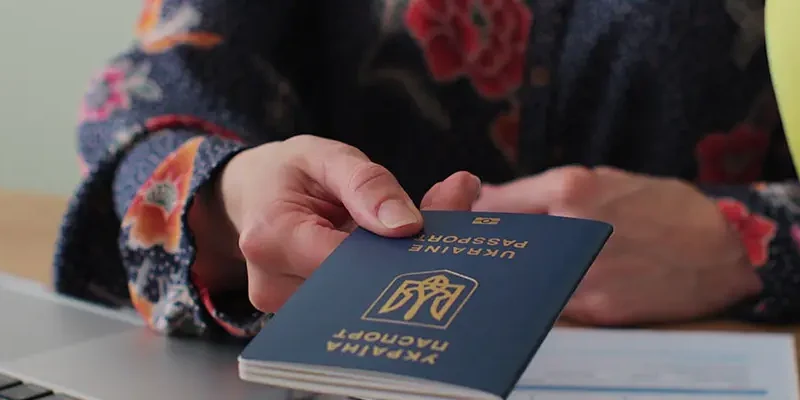The 8 steps of the Consular Processing

The consular processing is an essential path for those who wish to immigrate to the United States, but are outside the country. This procedure allows foreign citizens to obtain an immigrant visa, opening the doors for them to become permanent legal residents. If you find yourself in this situation and need to understand each step of the consular processing, this article will provide you with a detailed guide.

Below, we will explain the 8 fundamental steps of the consular processing and how an immigration attorney in Dallas can be your best ally on this journey.
Introduction to the Consular Processing
The consular processing is the standard procedure for foreigners who wish to apply for an immigrant visa from outside the United States. Unlike the adjustment of status, which is done within the country, the consular processing requires the applicant to undergo a series of steps in their country of origin before being able to enter the United States as a permanent resident.
Why is the Consular Processing Important?
The consular processing is essential for those who are not in the United States and wish to obtain an immigrant visa. This process is overseen by the United States Department of State through its embassies and consulates worldwide. Following each step of the process correctly is crucial to avoid delays or potential denials.


Having the right legal assistance during the consular processing can make a significant difference. Our specialized immigration attorneys are ready to guide you through each step, ensuring your application is well-prepared and all legal requirements are met.
Step 1: Determine Your Basis for Immigration
The first step in the consular processing is determining whether you are eligible to receive an immigrant visa. This is typically based on a family relationship, a job offer, or a special status such as refugee or asylee. A specialized attorney can help you understand the best path for your particular case.
Types of Immigrant Visas

Immigrant visas are divided into various categories depending on your relationship with a U.S. citizen or lawful permanent resident. The most common include:
- Family-based visas: For spouses, children, and other close relatives of U.S. citizens or permanent residents.
- Employment-based visas: For those who have a job offer in the United States and whose employer is willing to sponsor them.
- Diversity visas: Also known as the visa lottery, offering opportunities for individuals from countries with low immigration rates to the United States.
Step 2: Submit the Immigration Petition
Once you have determined your eligibility, the next step is to submit the appropriate immigration petition. This will be done by a family member or employer on your behalf. In some cases, such as certain humanitarian programs, you can submit the application yourself.
Required Forms


The most common form to initiate the process is Form I-130 for family petitions or Form I-140 for employment-based petitions. An immigration attorney can ensure that all documents are submitted correctly to avoid problems at this stage.
Step 3: Wait for USCIS Decision
Once the petition is filed, the U.S. Citizenship and Immigration Services (USCIS) will evaluate your request. This process can take several months, and patience is key. If the petition is approved, your case will be transferred to the National Visa Center (NVC) for the next step.
What to do if your application is rejected?

If your petition is denied, you will receive a notification explaining the reasons for the rejection and whether you can appeal the decision. At this point, legal assistance becomes crucial, as an attorney can guide you through the appeal process or help you prepare a new application.
Step 4: Receive Notification from the National Visa Center
Once the NVC receives your case, they will send you a notification. This is an important step, as they will indicate the next steps to follow, the fees you need to pay, and the additional documents required.
Payments and Required Documents


The NVC will also inform you of any payments you need to make and the documents you must send. This is where legal assistance for the consular processing can ensure that everything is handled promptly and without errors.
Step 5: Prepare for the Interview
Once the NVC has received all the necessary documentation and a visa number is available, they will schedule an interview at the U.S. consulate or embassy in your home country. The interview is a critical step, and being well-prepared is essential for the success of your application.
What to Expect in the Consular Interview?

During the interview, a consular officer will review your case and ask questions to ensure you meet all visa requirements. Having an attorney prepare you for the interview can increase your chances of success.
Step 6: Update the National Visa Center
It is important to keep the NVC informed of any relevant changes, such as changes in address, marital status, or age, that may affect your application. Timely communication is key to avoiding delays.
Step 7: Pay Immigration Fees
Before traveling to the United States, you must pay the immigration fees required by USCIS. These fees cover the final processing of your visa and the issuance of your Green Card.
How to Make Payments?


Payments must be made through the USCIS online system. An attorney can guide you to ensure everything is in order and avoid problems at this final stage.
Step 8: Receive Your Green Card
After paying the fees and successfully completing the consular processing, you will receive your visa and be able to travel to the United States. Once in the country, you will receive your Green Card by mail, completing the immigration process.
Conclusion
The consular processing can be complex and stressful, but having proper legal representation can make a big difference. Our immigration attorneys in Dallas have the necessary experience to guide you through each step of the process, ensuring you meet all the requirements and that your application is successful.
If you need legal assistance with the consular processing or have questions about obtaining an immigrant visa, don’t hesitate to schedule an appointment with our expert immigration attorneys in Dallas. We are here to help you every step of the way!
Buscar
Categorías
Populares
Recientes
Programe una cita con nuestro equipo de inmigración
Para cualquier duda, comuníquese con uno de nuestros asesores legales
+1 (214) 501-0560
LUNES - VIERNES:
8:00 AM - 6:00 PMSÁBADOS - DOMINGOS:
Cerrado








